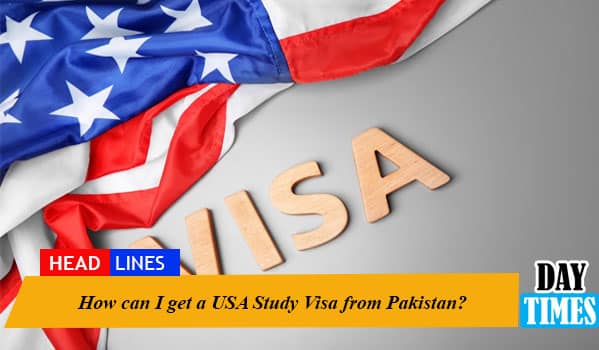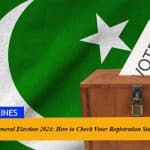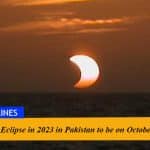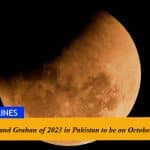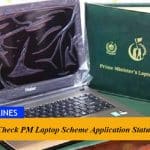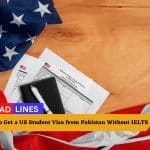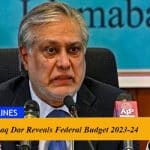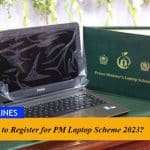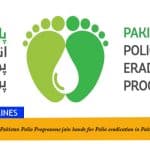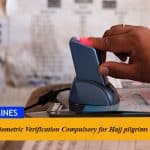If you are a Pakistani student who wants to study in the United States, you must obtain a student visa. This can be daunting, but it is possible to successfully obtain a permit with the proper preparation. This article will walk you through the steps to get a USA study visa from Pakistan.
Step 1: Research Schools and Programs
The first step in obtaining a student visa is to research schools and programs in the United States that you are interested in attending. You should consider factors such as the school’s location, the programs offered, the cost of tuition, and the availability of financial aid.
It is essential to choose a school that is accredited by a recognized accreditation agency. This will ensure that your degree will be identified by employers and other educational institutions.
Once you have identified the schools and programs you are interested in, you should contact the schools to obtain information about their admission requirements and application procedures.
Step 2: Apply to Schools
After researching schools and programs, the next step is to apply to the schools you are interested in attending. You will need to submit an application form and supporting documents such as transcripts, test scores, and letters of recommendation.
Most schools require that you take standardized tests such as the SAT or ACT, and some may require that you take English proficiency tests such as the TOEFL or IELTS.
You should begin the application process as early as possible, as it can take several months to receive a decision from the school.
Step 3: Receive Form I-20 from School
Once you have been accepted to a school and have provided proof of financial support, the school will issue you a Form I-20. This form is a certificate of eligibility for a student visa.
The Form I-20 will contain important information, such as the name of the school you will be attending, the program you will be enrolled in, and the duration of your program.
You will need to take Form I-20 for your visa interview, so you must keep it in a safe place.
Step 4: Pay the SEVIS Fee
Before you can schedule a visa interview, you must pay the SEVIS fee. The SEVIS fee is a fee that covers the cost of the Student and Exchange Visitor Information System (SEVIS), which is a system used by the U.S. government to track students and exchange visitors.
The fee can be paid online, and you must provide the receipt number when you schedule your visa interview.
Step 5: Schedule a Visa Interview
Once you have received your Form I-20 and paid the SEVIS fee, you can schedule a visa interview at the U.S. embassy or consulate in Pakistan.
The visa interview is an essential step in the process, as it is where you can demonstrate that you are a bona fide student who intends to return to Pakistan after completing your studies.
You should be prepared to provide documentation such as your passport, Form I-20, SEVIS fee receipt, and proof of financial support.
Step 6: Attend the Visa Interview
On the day of your visa interview, you should arrive at the embassy or consulate early, as there may be a long line. You should dress professionally and be prepared to answer questions about your academic background, an intended program of study, and plans to return to Pakistan after completing your studies.
You should also be prepared to demonstrate that you have sufficient funds to cover tuition and living expenses in the United States.
Step 7: Receive Your Visa
If your visa application is approved, you will receive your visa within a few days. The key will be stamped in your passport, including the dates you can enter and leave the US.
Step 8: Prepare for Departure
After you have received your visa, it is time to prepare for your departure to the United States. This will involve making travel arrangements, finding housing, and familiarizing yourself with the school and the surrounding area.
You should also research the laws and customs of the United States and the culture of the region where your school is located. This will help you adjust to your new environment and avoid cultural misunderstandings.
Step 9: Maintain Your Status
Once you arrive in the United States, it is essential to maintain your status as a student. This will involve attending all of your classes, maintaining good academic standing, and adhering to the rules and regulations of your school.
You will also need to report any changes to your status, such as changes in your address, enrollment status, or financial situation, to the U.S. government.
Step 10: Renew Your Visa
If you need to stay in the United States longer than your visa allows, you may need to renew your passport. This will involve submitting a new application and attending another visa interview.
It is essential to remember that obtaining a visa does not guarantee that you will be allowed to enter the United States. U.S. immigration officials can deny entry to anyone they believe threatens national security or is not eligible for admission under U.S. immigration law.
Conclusion
Obtaining a student visa to study in the United States can be a complex process, but it is possible to successfully navigate the system with the proper preparation. By researching schools and programs, applying early, obtaining the necessary documentation, and preparing for your visa interview, you can increase your chances of getting a visa and pursuing your educational goals in the United States.
Pros of Obtaining a USA Study Visa from Pakistan:
- High-Quality Education: The United States is home to some of the world’s top-ranked universities and colleges, offering high-quality education and research opportunities.
- Career Opportunities: Studying in the United States can open up new career opportunities, both in the United States and globally.
- Diverse Culture: The United States is a melting pot of cultures, offering a diverse and multicultural environment that can broaden your horizons and expose you to new perspectives.
- Improved Language Skills: Studying in the United States can improve your English language skills, which can be valuable in many fields and industries.
- Personal Growth: Studying abroad can be a transformative experience, providing opportunities for personal growth and self-discovery.
Cons of Obtaining a USA Study Visa from Pakistan:
- High Cost: Studying in the United States can be prohibitive for some students, including tuition fees, living expenses, and travel costs.
- Visa Restrictions: The process of obtaining a visa can be complicated and time-consuming, with no guarantee of success.
- Cultural Adjustment: Adjusting to a new culture can be challenging, and students may experience culture shock and homesickness.
- Separation from Family and Friends: Studying abroad can mean being separated from family and friends, which can be difficult for some students.
- Political Climate: The political climate in the United States can be polarizing and divisive, and some international students may feel unwelcome or uncomfortable.
Faqs:
Q: How long does obtaining a USA study visa from Pakistan take?
A: The processing time for a USA study visa can vary depending on several factors, including the time of year, the workload of the embassy, and the complexity of the application. Applying for a visa as early as possible is recommended, as the processing time can take several weeks or even months.
Q: What are the minimum requirements for a USA study visa from Pakistan?
A: The minimum requirements for a USA study visa from Pakistan include being accepted into a U.S. educational institution, having sufficient funds to cover tuition and living expenses, and having a valid passport. Additionally, applicants may be required to provide additional documentation, such as academic transcripts, test scores, and proof of English proficiency.
Q: Do I need to take the TOEFL or IELTS exam to obtain a USA study visa?
A: The TOEFL or IELTS exam may be required as part of the application process for a USA study visa, depending on the educational institution’s requirements. However, even if the institution does not require the exam, taking it is recommended as it can improve the chances of obtaining a visa.
Q: Can I work on a student visa while studying in the United States?
A: Students on a USA study visa can work on-campus for up to 20 hours per week during the academic year and full-time during breaks and vacations. However, off-campus employment is generally not permitted without prior authorization from the U.S. government.
Q: Can I bring my family to the United States on a student visa?
A: Immediate family members, such as spouses and unmarried children under the age of 21, may be able to accompany a student on a USA study visa by obtaining a dependent visa. However, they may be unable to work while on a dependent visa in the United States.
Q: Can I extend my USA study visa from Pakistan?
A: Extending a USA study visa may be possible, depending on the circumstances. However, it is essential to apply for an extension before the expiration of the current key and to provide sufficient documentation to support the request for an extension.
